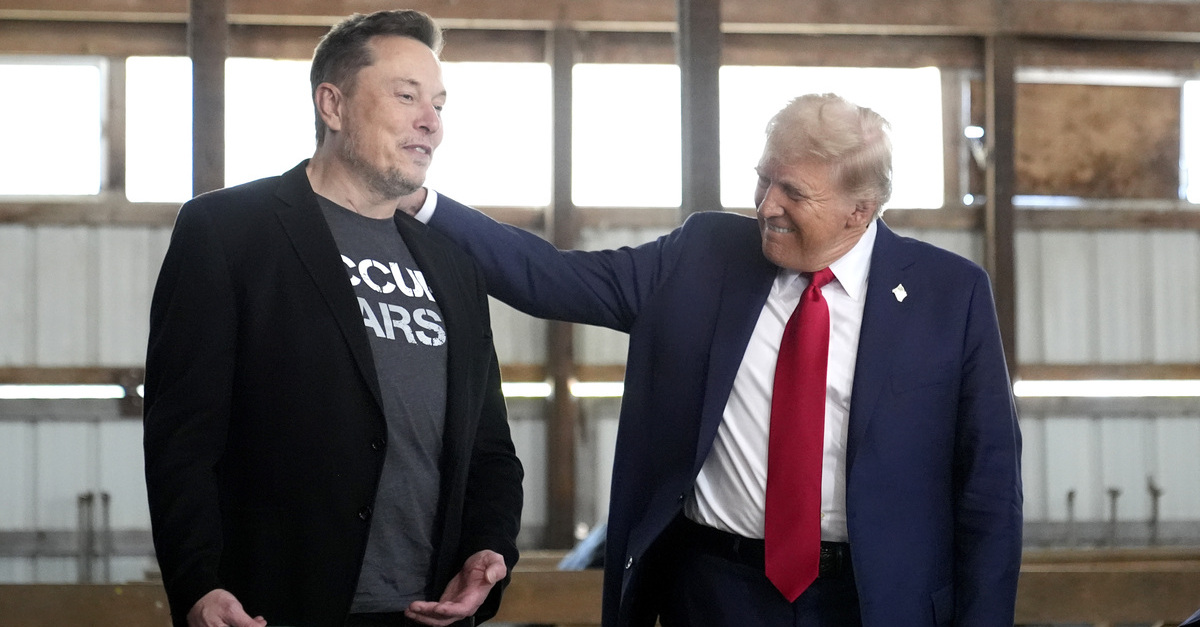
Tesla and SpaceX CEO Elon Musk, left, and Republican presidential nominee former President Donald Trump attend a campaign event at the Butler Farm Show, Saturday, Oct. 5, 2024, in Butler, Pa. (AP Photo/Alex Brandon).
The nation’s largest federation of labor unions on Thursday won a significant victory against the Trump administration in their efforts to peel back the curtain on the activities of the Elon Musk-helmed Department of Government Efficiency (DOGE).
In a 16-page order, U.S. District Judge John Bates, a George W. Bush appointee, ordered four members of the “opaque” cost-cutting group to sit for depositions on a series of “properly-scoped topics.” The under-oath testimony will total eight hours, the court ruled.
The judge’s move to enforce a certain measure of transparency on DOGE comes in response to an expedited discovery request from the AFL-CIO, several other unions, and a progressive economic think tank. Filed earlier this month, the underlying lawsuit aims to bar the often-evasively-defined group from accessing nonpublic Department of Labor information and accuses DOGE of violating “multiple laws.”
“Although this in an Administrative Procedure Act case, the discovery plaintiffs request is proper because it is necessary to determine the contours of the agency actions that plaintiffs challenge,” the order reads. “The limited expedited discovery plaintiffs request is also reasonable.”







